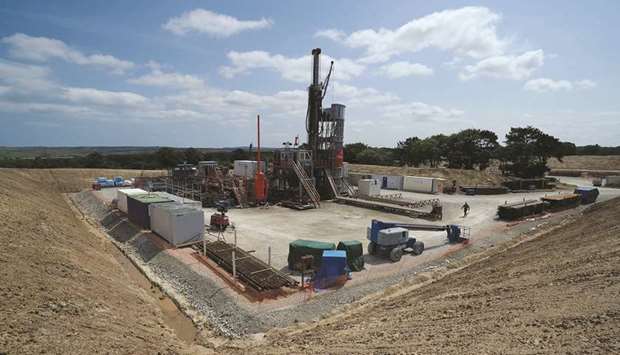Sirius Minerals Plc’s ambitious plans to build a $3.8bn potash mine in the north of England were left hanging by a thread yesterday after the company admitted it couldn’t raise the money it needed.
It’s the biggest blow yet to a project that has, at times, seemed like a long shot. Sirius, which doesn’t have any other operations to generate cash flow, has faced a long battle to raise capital. It’s also had to overcome environmental opposition and concerns about demand prospects for its potash.
Sirius’s plans were thrown into doubt after it last month suspended a bond sale, required to unlock a $2.5bn credit facility from JPMorgan Chase & Co. The company had planned to try again this month, but said yesterday that it can’t raise the $500mn in the current market and that the government had again refused to help guarantee its debt.
That triggered a collapse in Sirius shares and left the future of 1,200 workers in doubt.
It’s also a body blow for an economically deprived area of the country. Overlooking the seaside town of Whitby, the setting for part of Bram Stoker’s Dracula, the company planned to transport the potash it mined through a 37 kilometre (23-mile) tunnel to the port at Teesside.
Once a key steelmaking region, it’s fallen on hard times as plants closed. Some locals are set to benefit from mineral rights, while others have bought shares in the company.
Anna Turley, a lawmaker for the opposition Labour Party who represents nearby Redcar, said in a Facebook post that the news is devastating. “That the government is refusing to step in and secure this enormous project is an absolute disgrace,” she said. Another Labour lawmaker for Middlesbrough said in a Twitter post that the project is critical to Teesside’s future.
“All requests for financial support must meet necessary lending criteria,” a UK government spokesman said yesterday. “When examining any request for financing, we have to assess the potential of a project against the need to protect taxpayers’ money.”
Sirius will now slow work on the mine as it carries out a strategic review over the next six months. The company will study options to adjust the construction schedule to lower risk, in addition to exploring alternative financing structures. It’s also planning to look at the possibility of bringing in a partner to buy “a significant part” of the project.
“The only seemingly realistic solutions are that the government guarantees the bonds, which they have rejected, or they bring on a strategic investor who takes an equity stake and is willing to finance it,” said Richard Knights, an analyst at Liberum Capital Markets, one of Sirius’s corporate brokers.
Sirius fell as much as 64%, the most ever, before trading down 52% in London yesterday. That cut the company’s market value to just $418mn.
Chris Fraser, the former investment banker chief executive of Sirius, said on a call with investors that the company would run out of money in early October if it didn’t curtail its operations. The company will continue to work until it gets to “logical places” to stop its developments, while it seeks news funds. Fraser said the company had created a window of up to six months.
Sirius, backed by Australian billionaire Gina Rinehart, plans to extract polyhalite from a mine more than a mile deep. It had planned to produce the first potash in 2021 and has already started sinking two giant shafts and digging the tunnel to transport it.
One of the shafts is already more than 100 metres deep, with 1,200 staff and contractors on site. So far, the company has spent about $1.5bn, including building a plant to make concrete supports for the tunnel. Once in production, Sirius planned to employ about 1,000 people and export $2.5bn in potash each year. Sirius said it re-engaged with the UK government after pulling the initial bond sale in August, but its request for bond guarantees to help de-risk the current fund raising was refused.
The company had only secured the last-minute agreement with JPMorgan after a deal to get loans guaranteed by the UK’s Infrastructure Project Authority failed to materialise.
Sirius intends to terminate the revolving credit facility commitment in the coming days, it said. “Do I think it should get built, do I think the economics are there? Absolutely. Do I think someone will make a lot of money if they do build it? Yep,” said Knights.
“But it’s finding someone with access to that amount of capital who is willing to think a bit outside the box. When push comes to shove, who is going to pull the trigger on this?”

Sirius Minerals test drilling station on the North Yorkshire Moors near Whitby, northern England. Sirius ambitious plans to build a $3.8bn potash mine in the north of England were left hanging by a thread yesterday after the company admitted it couldn’t raise the money it needed.
